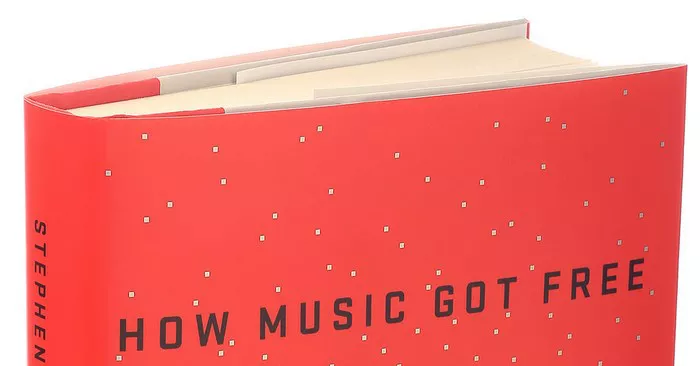Music is a universal language that transcends barriers and connects people on a profound level. For many, including myself, music is not just a form of entertainment but a fundamental aspect of life that shapes emotions, memories, and experiences. In this article, we will explore the multifaceted ways in which music influences and enriches my life.
Emotional Resonance And Mood Enhancement
One of the most striking effects of music on my life is its ability to evoke and amplify emotions. Whether it’s the soothing melodies of classical music that calm my mind after a long day or the energetic beats of pop music that lift my spirits during workouts, music has a remarkable power to modulate my emotional state. Research has shown that listening to music activates neural pathways associated with pleasure, leading to the release of dopamine, a neurotransmitter linked to feelings of happiness and reward.
Memory And Nostalgia
Music has a unique ability to serve as a time machine, transporting me back to significant moments in my life. Certain songs or albums can trigger vivid memories of past experiences, evoking nostalgia and a sense of nostalgia. For instance, hearing a song from my childhood instantly brings back memories of family gatherings and carefree days spent with friends. This connection between music and memory is deeply personal and adds a layer of richness to my life experiences.
Stress Reduction And Relaxation
In today’s fast-paced world, stress has become a common companion for many. Music serves as a powerful antidote to stress, offering a refuge of tranquility and relaxation. Whether it’s instrumental music, nature sounds, or ambient tunes, creating a calming playlist has become an essential part of my self-care routine. Studies have shown that listening to relaxing music can lower cortisol levels, reduce anxiety, and promote overall well-being.
Creative Inspiration And Productivity
As someone who values creativity and productivity, music plays a vital role in fostering inspiration and focus. The right music can enhance concentration and flow, making tasks more enjoyable and efficient. Whether I’m writing, working on a project, or engaging in creative pursuits, music serves as a creative catalyst that fuels my imagination and keeps me motivated.
Social Connection And Community
Music has a unique ability to forge bonds and foster a sense of belonging. Whether it’s attending concerts, sharing playlists with friends, or simply discussing favorite artists, music serves as a common ground that brings people together.
The shared experience of music creates connections that transcend differences, fostering a sense of community and unity.
Personal Growth And Expression
Beyond its immediate effects, music has also played a transformative role in my personal growth and self-expression. Exploring diverse genres and discovering new artists has broadened my musical horizons and expanded my perspective.
Moreover, creating music—whether through singing, playing an instrument, or composing—has been a deeply rewarding form of self-expression and creativity.
What Music Can Bring to Our Lives?
Improve temperament and taste of life
Music originates from life and is higher than life. It is a concrete embodiment of our lives. Learning music can effectively improve artistic aesthetics and ideological dimensions, and naturally affects life and personality. Unlike dance and painting, which are mainly based on visual senses, music Mainly, music is a form of artistic expression that comes from the depths of the soul, so music is an art that improves and expresses the overall temperament. Studying music will give you a deeper feeling and understanding of the world and life.
Improve intelligence and imagination
There is a famous line in “The Pianist on the Sea”: Music is played on finite keys, and infinite music is played. Just like this, there are infinite possibilities hidden in the notes of music, which provides a perfect stage for our imagination and jumping thinking. We can use notes to interpret music that belongs only to us.
Music can improve moral character
Just like Socrates’ evaluation of music, there is a saying in Taiwan’s education circle: “Children who learn music will not learn bad things.” This sentence undoubtedly praises the positive role of music in education. When we learn music, we also To learn the process of rational thinking and emotional thinking, if you want to control music, you must first learn to control yourself. More importantly, the education of music is subtle, allowing people to learn beauty, feel beauty, and practice beauty while learning music.
Develop self-expression skills
catharsis:
Nowadays, social pressure is huge, and many young people are always unable to bear the difficulties and setbacks in life. People who study music can express the negative emotions accumulated in their hearts more quickly through music. Playing every piece of music, in fact, They are all expressing his true inner feelings. For those who are not good at verbal expression, music will become the best way to express their emotions.
Conclusion
In conclusion, music is not just a soundtrack to my life but an integral part of who I am. From its ability to evoke emotions and memories to its role in reducing stress and fostering creativity, music enriches my life in countless ways. As I continue to explore the vast and diverse world of music, I am reminded of its timeless power to inspire, connect, and uplift the human spirit.
This article has highlighted some of the key ways in which music affects my life, showcasing its profound impact on emotions, memories, relaxation, creativity, social connection, and personal growth. Through music, I find joy, solace, inspiration, and a sense of belonging—a testament to the enduring power of this universal art form.
Related topics:


























